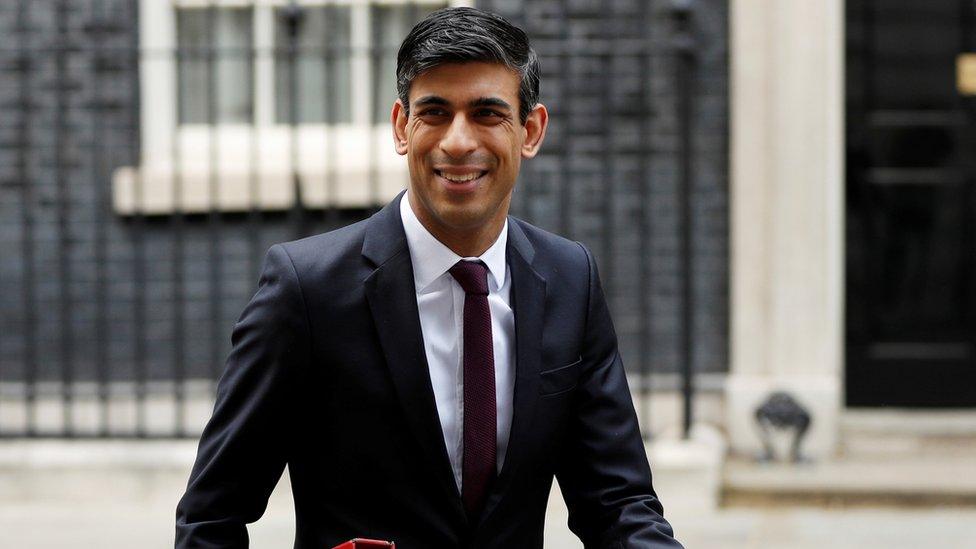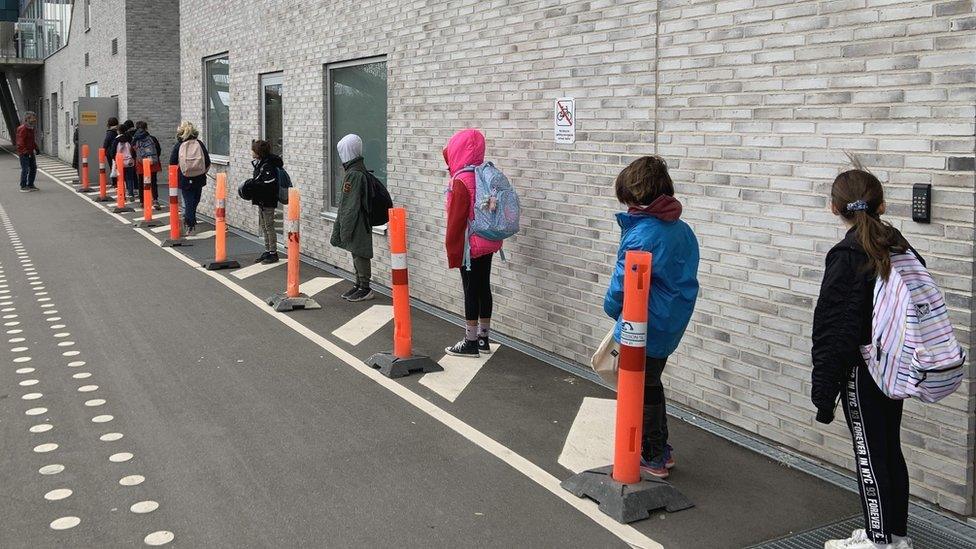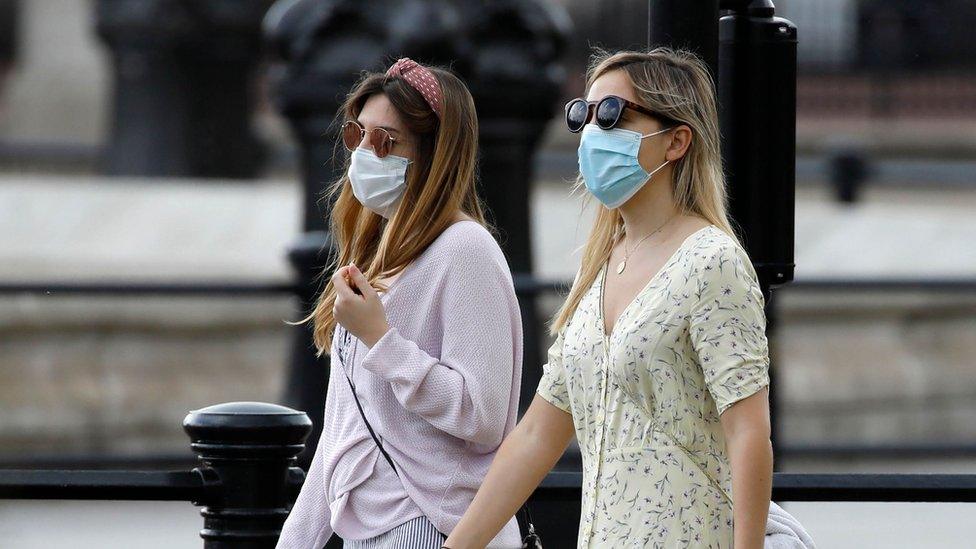Coronavirus: Furlough scheme, school and workplace guidance and NI plan
- Published
Here are five things you need to know about the coronavirus outbreak this Tuesday morning. We'll have another update for you at 18:00 BST.
1. Job retention scheme
More than six million people are currently on furlough - having 80% of their wages paid by the government. The hugely expensive scheme is due to run out at the end of June, and later, Chancellor Rishi Sunak is widely expected to announce a gradual winding down. However, he might also introduce more flexibility, for example for part-time workers. Hard-hit industries fear widespread job losses if the support package is removed.

Chancellor Rishi Sunak is facing calls to extend the scheme beyond June

2. Guidance for workplaces and transport
After criticism that it issued a return to work message without any accompanying safety advice, the government has now published a slew of material, external for a range of sectors. Guidance is also due later on how people can safely use public transport - read more on how we should travel. So can your boss now force you to return to work? Find out more.
How to run a factory during a pandemic

3. How could children get back to class?
Guidance has also been published for schools on how they could reopen with social distancing from 1 June. Class sizes of no more than 15, staggered break times and one-way systems may all form part of the plans adopted by headteachers. See how schools in Demark are implementing many of those measures already.

At the Copenhagen International School there is a measured entrance into school

4. Northern Ireland lockdown plan
The Stormont devolved government will publish its five-stage strategy later for lifting coronavirus restrictions. Scotland and Wales are already taking slower steps than England, while Northern Ireland's plan will not include, as junior minister Declan Kearney put it, "arbitrary timelines".


5. Answering your questions
We've been doing our best to explain the new lockdown rules in England, nuanced as they are. Among the most common questions - can you see your friends and parents, and where exactly can you now go for a walk? And what about masks? We explain where you now need to wear one and how can you make your own.


And don't forget...
You can find more information, advice and guides on our coronavirus page and get all the latest from around the world via our live page.
To mark International Nurses Day, the BBC has spoken to nurses working on four different continents, to learn about the challenges they face in the battle against Covid-19.


What questions do you have about coronavirus?
In some cases, your question will be published, displaying your name, age and location as you provide it, unless you state otherwise. Your contact details will never be published. Please ensure you have read our terms & conditions and privacy policy.
Use this form to ask your question:
If you are reading this page and can't see the form you will need to visit the mobile version of the BBC website to submit your question or send them via email to YourQuestions@bbc.co.uk, external. Please include your name, age and location with any question you send in.